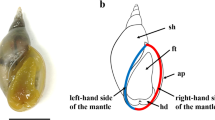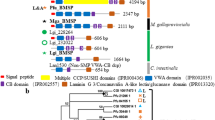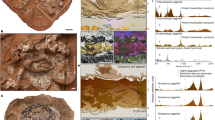Abstract
A STUDY of shell regeneration in Helix aspersa (Müller)1 showed that this snail was able to repair its shell with rapidity, chiefly by virtue of the speed with which amœbocytes could transport materials to the damaged area, either from the digestive gland or from other parts of the shell. It was of considerable interest, therefore, to investigate whether a similar process could operate in other Mollusca, and particularly whether there was any distinction between snails in different habitats.
This is a preview of subscription content, access via your institution
Access options
Subscribe to this journal
Receive 51 print issues and online access
$199.00 per year
only $3.90 per issue
Buy this article
- Purchase on Springer Link
- Instant access to full article PDF
Prices may be subject to local taxes which are calculated during checkout
Similar content being viewed by others
References
Wagge, L. E., Quart. J. Mic. Sci., 92, 307 (1951).
Bevelander, G., and Benzer, P., Biol. Bull., 94, 176 (1948).
Heaysman, J. E. M., Ph.D. thesis, University of London (1951).
Bevelander, G., Biol. Bull., 102, 9 (1952).
Author information
Authors and Affiliations
Rights and permissions
About this article
Cite this article
WAGGE, L., MITTLER, T. Shell Regeneration in some British Molluscs. Nature 171, 528–529 (1953). https://doi.org/10.1038/171528b0
Issue Date:
DOI: https://doi.org/10.1038/171528b0
This article is cited by
-
Ultrastructural study of the shell-repair membrane in the snail, Helix pomatia L.
Cell and Tissue Research (1976)
-
Food, feeding rates and assimilation in the land snail Cepaea nemoralis L.
Oecologia (1975)
-
Shell repair in Nautilus macromphalus
Marine Biology (1974)
-
Effect of Ribonuclease on Shell Regeneration in Ariophanta sp.
Nature (1961)
Comments
By submitting a comment you agree to abide by our Terms and Community Guidelines. If you find something abusive or that does not comply with our terms or guidelines please flag it as inappropriate.



